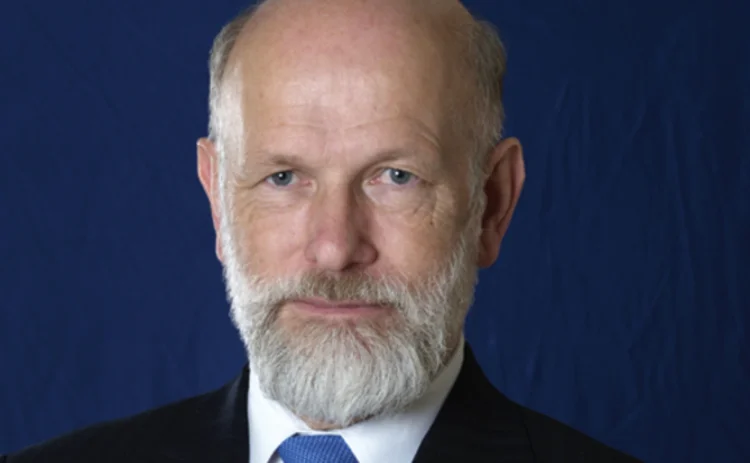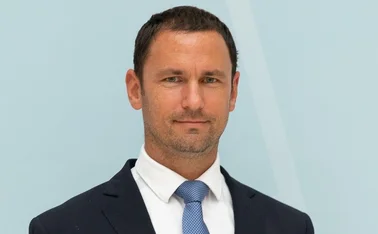
David Mayes: 1946–2017
The internationally minded professor was a stalwart of the central banking community

David Mayes, professor of finance at the University of Auckland, central banker and long-standing contributor to Central Banking, died on November 30, aged 71.
The New Zealand-based professor was a prolific writer of academic works, continuing to produce papers, articles and book chapters throughout this year. He was known especially for his work with central banks, having served as chief economist at the Reserve Bank of New Zealand (RBNZ) and as an adviser to the central banks of Finland and Estonia.
Mayes studied PPE at the University of Oxford, graduating in 1968, before moving to the University of Bristol for a PhD, which he completed in 1971. Much of his early work focused on matters of European integration, with the European Union still youthful; the UK had not yet joined when he completed his doctorate, let alone considered leaving.
His earliest paper listed on the Ideas/Repec database is titled The changing price of butter, dated 1974, a possible nod to the “wine lakes and butter mountains” the EU’s policies were accused of creating. It models the impact of changing quotas on price, thereby assessing the impact on the UK of the EU’s common agricultural policy. In later papers he examined the effects of European integration on trade, the implications of closer European integration on Australia and New Zealand, and the burgeoning rational expectations revolution, among many other topics.
Mayes held various roles throughout the 1980s, including working for the UK’s now-defunct National Economic Development Office, and at the University of Exeter. In the early 1990s he moved to the New Zealand Institute of Economic Research, publishing work with, among others, Alan Bollard, who would go on to become governor of the RBNZ in 2002. Mayes himself became chief economist of the RBNZ in 1994, a role that today would be labelled assistant governor, serving until 1997.
Mike Hannah, head of communications at the RBNZ, says: “I knew David first from his NZIER days, before his time at the Bank, and met him a few times in recent years at central bank events, where he always took an interest in developments at the RBNZ, more recently in prudential regulation. He generously gave me a day at the Bank of Finland, where he was working a few years ago, talking through issues around central bank independence.”
From 1997 until 2008, Mayes worked as an adviser to the board of the Bank of Finland. He was also a research supervisor at the Bank of Estonia from 2002 until 2007. He joined the University of Auckland in 2008.
For many years, Mayes was a contributor to Central Banking, publishing articles and book reviews in the journal, writing for the viewpoint column, and chairing courses on economic analysis at the Cambridge seminar series. Central Banking’s chairman, Robert Pringle, says: “We recall David as a calm, gentle person, always helpful, clear in his views, with great insight in economics and central banking, quietly serious, but leavened with a dry wit.”
The Bank of Spain’s María Nieto co-authored several papers with Mayes, including a widely cited piece with Larry Wall on safety nets for European banks. “David was not only a fabulous colleague of high intellectual capacity and a person of integrity but also a very good friend and supporter of my work,” she says. “He will be missed.”
Mayes’ most recent work, authored in the wake of the financial crisis, has focused on designing effective banking regulation, including bail-in, deposit insurance, and other aspects of resolution frameworks. He collaborated closely in recent years with economists at the University of Buckingham to scrutinise and challenge the post-crisis consensus on regulation.
Juan Castañeda, director of the Institute of International Monetary Research at Buckingham, collaborated extensively with Mayes in the last few years. “He was an excellent economist with so much knowledge on so many different facets related to the understanding of money and central banking, and indeed a very nice person; he will be deeply missed,” Castañeda says.
He was also highly committed to his students. Jayne Godfrey, dean of the University of Auckland Business School, says Mayes taught at all levels, from undergraduate to post-doctoral, seeing many PhD candidates successfully through their studies. Norman Wong, head of Mayes’ department, described him as an “exceptional and passionate educator”, who made a “significant difference” to many lives.
Mayes died on November 30. Having been diagnosed with cancer just a few weeks earlier, he suffered a stroke from which he did not recover. His funeral was held today (December 8), close to his home on New Zealand’s Waiheke Island.
Only users who have a paid subscription or are part of a corporate subscription are able to print or copy content.
To access these options, along with all other subscription benefits, please contact info@centralbanking.com or view our subscription options here: www.centralbanking.com/subscriptions
You are currently unable to print this content. Please contact info@centralbanking.com to find out more.
You are currently unable to copy this content. Please contact info@centralbanking.com to find out more.
Copyright Infopro Digital Limited. All rights reserved.
As outlined in our terms and conditions, https://www.infopro-digital.com/terms-and-conditions/subscriptions/ (point 2.4), printing is limited to a single copy.
If you would like to purchase additional rights please email info@centralbanking.com
Copyright Infopro Digital Limited. All rights reserved.
You may share this content using our article tools. As outlined in our terms and conditions, https://www.infopro-digital.com/terms-and-conditions/subscriptions/ (clause 2.4), an Authorised User may only make one copy of the materials for their own personal use. You must also comply with the restrictions in clause 2.5.
If you would like to purchase additional rights please email info@centralbanking.com







